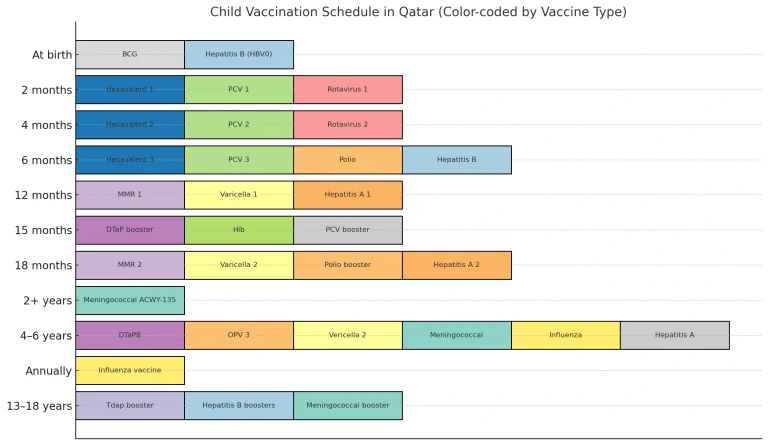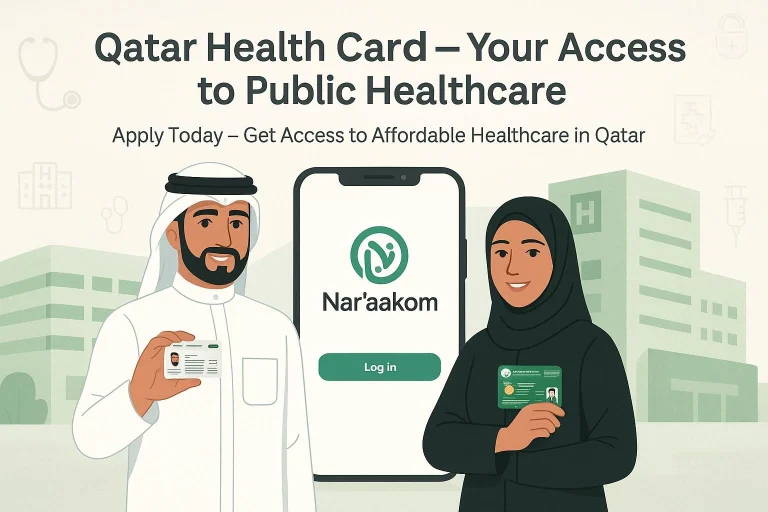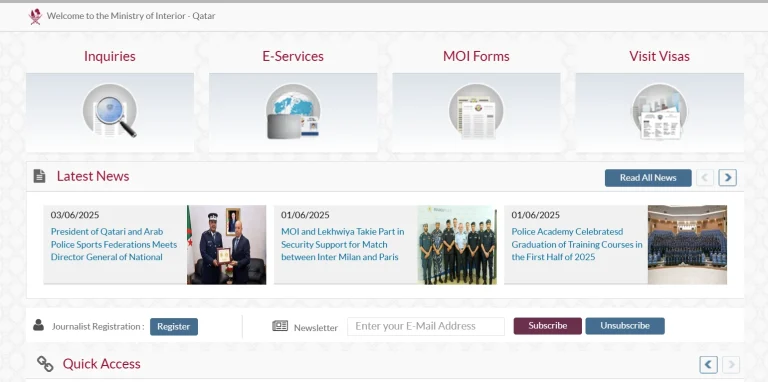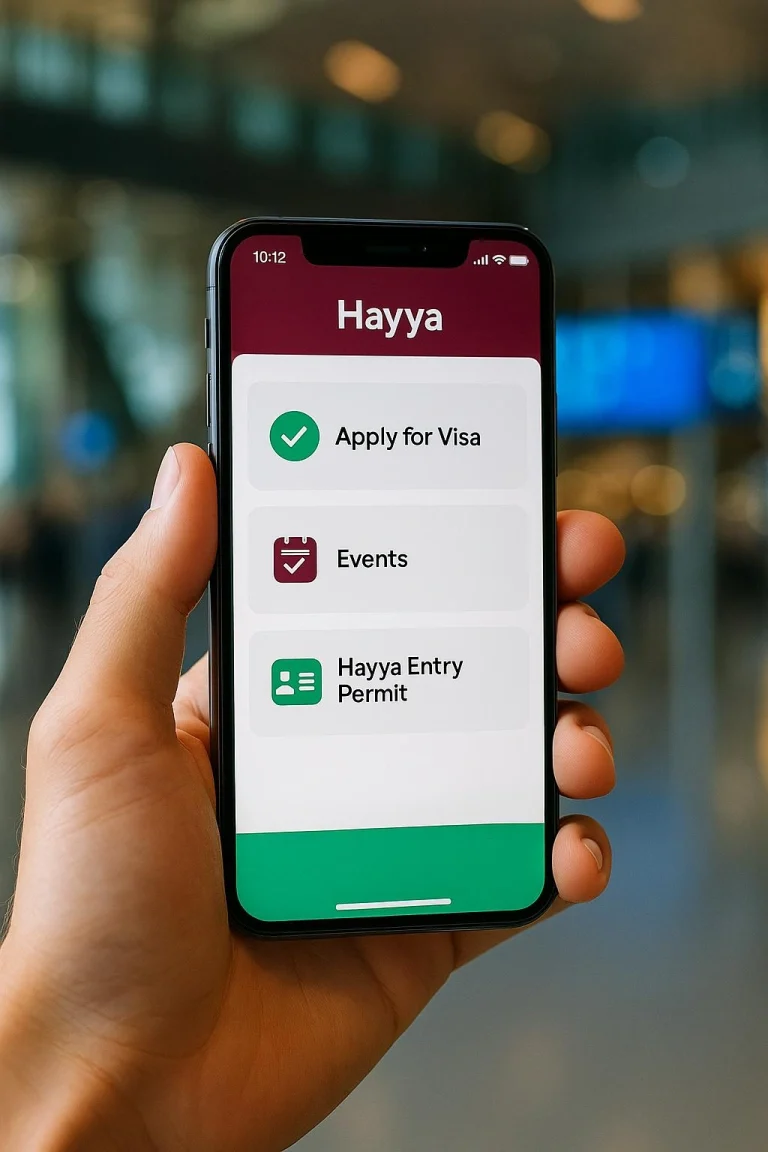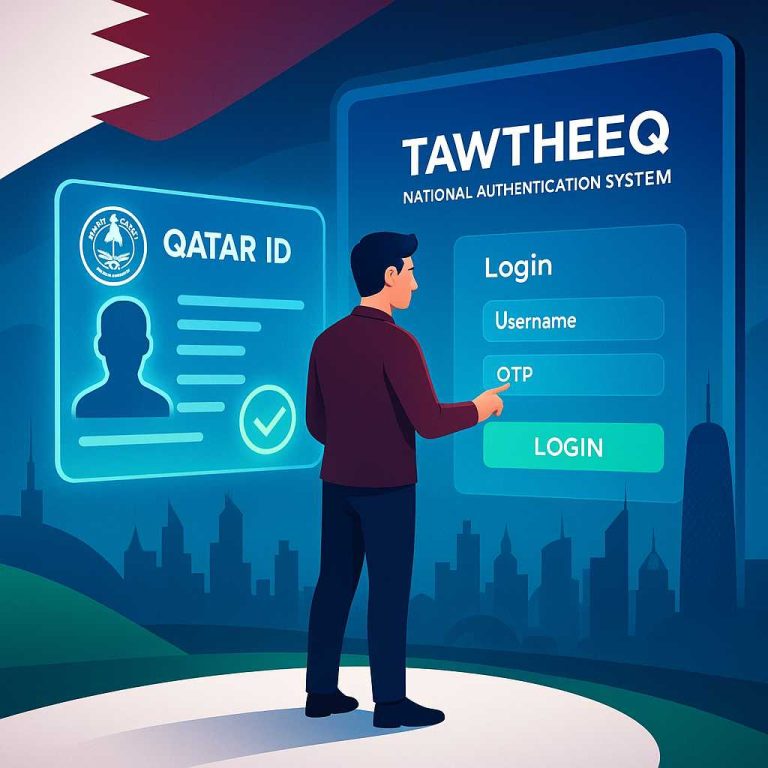Welcoming a new life into the world is a beautiful journey. If you’re pregnant or planning to have a baby in Qatar, this 2025 guide is your trusted resource for everything you need to navigate the maternity experience with confidence. Qatar offers high-quality prenatal care, world-class hospitals, and supportive healthcare services for both citizens and expatriates.
Whether you’re looking for the best hospital for delivery, curious about the cost of childbirth, or need help understanding your insurance coverage, this guide has you covered. You’ll also find helpful tips on maternity leave, antenatal checkups, public vs private care, and how to register your newborn after birth.
This easy-to-follow guide on baby delivery in qatar also explains key steps like prenatal visits, hospital registration, delivery options, and postnatal care to help expecting moms, partners, and families feel fully informed and prepared for the journey ahead.
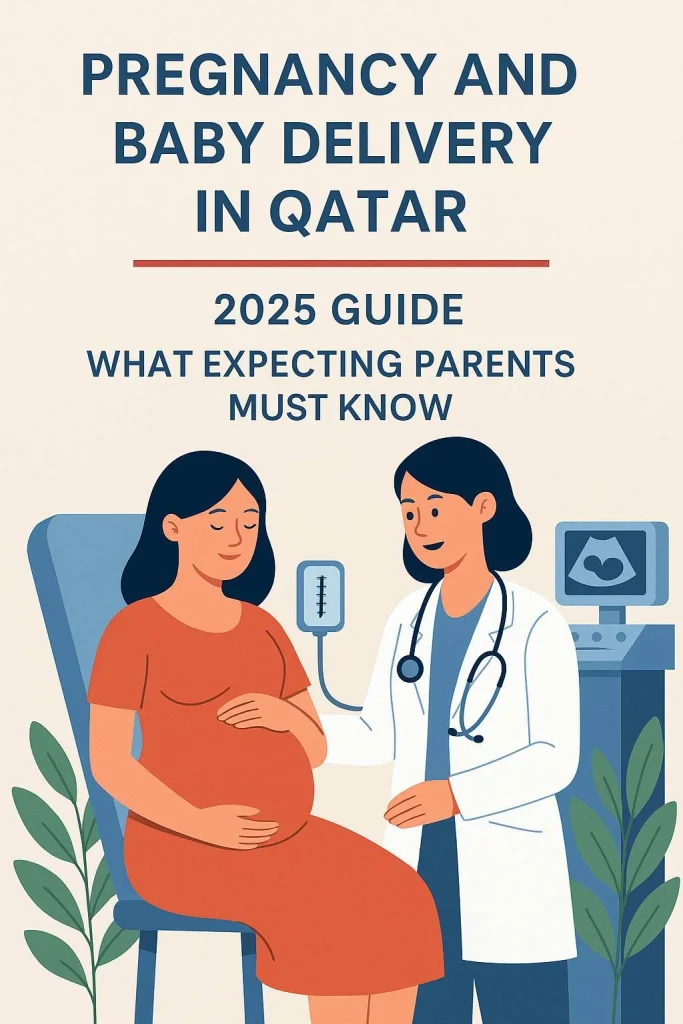
Pregnancy tests in Qatar
This is the first step to check whether a woman is pregnant or not. In qatar, Pregnancy testing kits are widely available and you can purchase these kits from local pharmacies including Al-Meera, Lulu, Boots, and other drugstores. These kits are not expensive and costs you around 25 to 100 QAR and give a quick check.You do not need to provide QID for purchasing these kits.
Clinic-Based Pregnancy Tests
In clinics, doctors will conduct a urine test for pregnancy check.One govt clinics, these are free of cost.
When to Take the Test
The best time to take a pregnancy test is at least one week after a missed period for accurate results. For early detection, blood tests at clinics are more reliable than home kits.
Important point:
In Qatar, it is illegal to have a kid without being married. It is considered a serious offense that can result in legal consequences such as jail time or deportation, particularly if you are an expatriate.
Under Article 281 and 282 of the Qatari Penal Code, engaging in sexual relations outside marriage is punishable by imprisonment.
Public vs. Private Maternity Hospitals in Qatar: Which Should You Choose?
This is an important question to consider when deciding whether to choose a public or private hospital for maternal care.
Both options have their own pros and cons. Some people prefer private clinics for initial checkups and then choose public hospitals for later treatment or delivery. Let’s explore these two options in detail.
Maternity services in public hospitals
Qatar has a world-class public healthcare system. It is also a cost-effective option, as you can access excellent maternity care services at many public hospitals under Hamad Medical Corporation. The following public sector hospitals offer maternity care services:
Women’s wellness and research centre
You can check the hospitals list on Hamad.qa
Maternity services in private hospitals
Private hospitals in Qatar mean they are not covered under the Hamad health card, and this is a costly option. Besides this, they offer luxurious health care services. Private health insurances in Qatar may cover expenses at private hospitals, so if you purchase any private health insurance, this could be a viable option for you.
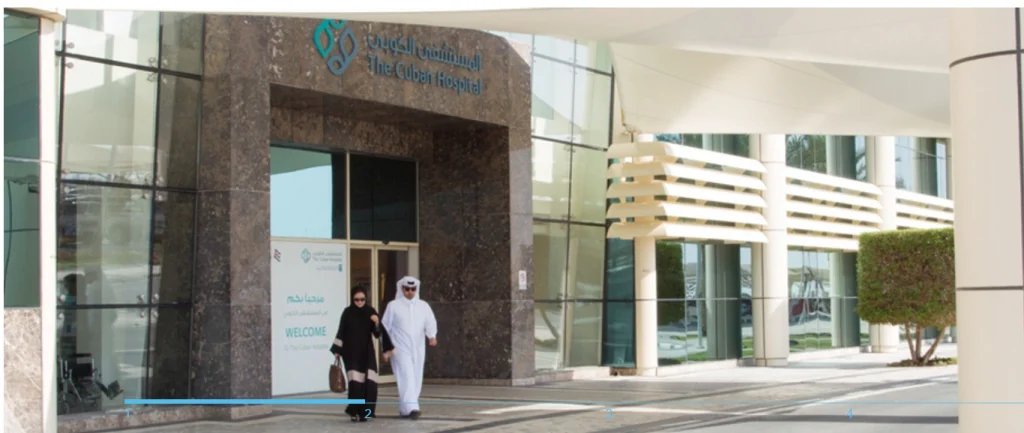
Difference between Public and private hospital regarding baby delivery in qatar
If we talk about pregnancy and baby delivery in Qatar, these are the main differences in terms of facilities, cost, and feasibility between government and private hospitals.
- Government hospitals give all the important pregnancy tests for free or at a low cost if you have a health card while Private hospitals offer extra tests like 3D scans and early gender checks, but these come at a higher price.
- In government hospitals, you follow a standard birth plan, and pain relief like epidurals may depend on availability but in Private hospitals allow you to choose how you want to deliver — water birth, epidural on request, and more comfort.
- In government hospitals, you’ll usually get a shared room unless there’s a medical reason for a private one. But in private hospitals, we can enjoy private or even luxury rooms, and sometimes our family can stay with us too.
- After delivery, government health centers provide basic breastfeeding support. On the other hand, in private hospitals, you can get one-on-one help from breastfeeding experts and useful baby care guidance.
- Government services are mostly free or very low cost if you have a Qatar health card.But if you go to a private hospital, be ready to spend QAR 10,000 or more — unless your insurance covers it.
Option1 Pregnancy and Baby Delivery at Public Hospitals in Qatar
Planning to deliver your baby at a government hospital like Hamad Women’s Hospital? Great choice! These hospitals offer top-notch care, trained medical staff, and free or low-cost maternity services if you have a valid Qatar Health Card.
Start with PHCC – Your First Step
Your journey begins at your nearest Primary Health Care Center (PHCC). Here’s what happens:
- Book an appointment at the women’s wellness clinic at your local PHCC.
- You’ll undergo a basic pregnancy confirmation test.Prenatal visits play a crucial role in maintaining a healthy pregnancy. During each session, medical staff typically monitor your weight, check your blood pressure, and perform urine tests. Key ultrasound exams are usually carried out between 11–13 weeks to observe the baby’s early development, and again at 18–20 weeks to confirm that growth is progressing normally.
- In addition, your primary care provider may advise further scans or track the baby’s heartbeat as needed. The exact number of visits required can differ based on your health condition and the hospital’s guidelines.
- A doctor will then open a maternal health file for you.
- They will schedule your blood tests, urine tests, BMI, and blood pressure check.
- You’ll get a referral to Hamad Women’s Hospital or the most appropriate HMC facility based on your location and medical needs.
Note: Without this PHCC referral, most public hospitals may not admit you for maternity services.
Required Documents to Carry
Qatar Health Card (mandatory for free/discounted care).In case of missing health card, you are required to submit your residential address along with your sponsor’s or husband QID.
QID (Qatar ID) of both parents
Marriage Certificate (required for registering the baby)
Referral Letter from PHCC
Previous reports or ultrasound scans (if done at a private facility)
Booking Your Delivery Hospital
Once referred, the hospital — usually Hamad Women’s Hospital or Al Wakra Hospital, depending on your zone — will:
- Review your PHCC file
- Schedule periodic ultrasounds and growth scans
- Monitor your vitals and fetal development
- Assign you to the right unit (low-risk or high-risk care)
If you’re categorized as high-risk, you’ll get closer monitoring and may be asked to visit more frequently.
Toward your third trimester, your hospital will prepare your delivery plan.
Preparing for Delivery – What You Need
When your due date is near (usually after 36 weeks), keep the following ready:
Hospital Bag Checklist:
- Your QID and Health Card
- Your pregnancy/maternity file
- Comfortable clothes, nightwear, nursing bras
- Newborn baby clothes (soft cotton), baby blanket, cap, mittens
- Basic toiletries for yourself
- Snacks and water bottle (for partner/support person)
Note: Public hospitals do not allow private rooms unless medically required, and your partner’s presence during delivery may depend on hospital policies.
When to Go to the Hospital
Go to the Emergency Maternity Unit immediately if you experience:
- Contractions every 5–10 minutes
- Water break (fluid leak)
- Bleeding or spotting
- Severe pain
- No baby movements for several hours
Emergency departments are open 24/7 — no need to wait for an appointment.
Cost of Delivery at Public Hospitals
Here’s what you need to know about fees:
- With valid Qatar Health Card:
Free of charge — includes prenatal checkups, delivery, medications, blood tests, and postnatal care. - Without Health Card:
You may be charged for each visit or service.
Delivery alone can cost QR 5,000 to 15,000, depending on the complexity and duration of your hospital stay.
Make sure to renew your Health Card before delivery to avoid any unexpected charges.
Postnatal Care at Public Hospitals
After your baby is born, you’ll receive:
- Monitoring for both mother and baby (up to 48 hours post-delivery)
- Baby’s initial vaccines (like BCG and Hepatitis B)
- Lactation support and breastfeeding guidance
- Instructions for PHCC postnatal follow-ups
- Assistance with birth certificate and vaccination schedule
Registering Your Baby’s Birth
Before discharge or shortly after, you’ll be asked to:
- Provide your and your spouse’s QIDs, passport copies, and marriage certificate
- Fill a birth notification form
- Visit the Birth Registration Office (located inside the hospital or health center)
You will then get:
- Baby’s Birth Notification
- Application instructions for Birth Certificate (usually through the Ministry of Public Health e-service)
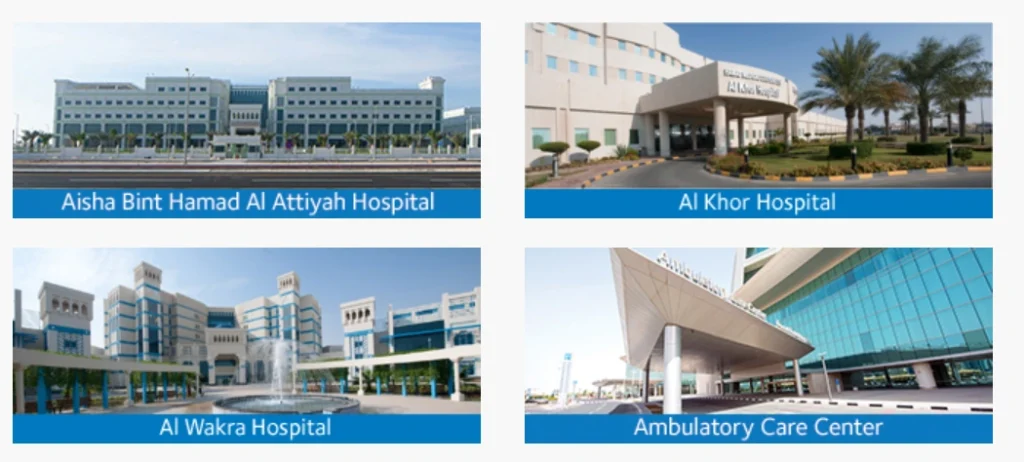
Option 2 Pregnancy and Baby Delivery at Private Hospitals in Qatar
If you’re planning to have your baby at a private hospital in Qatar, you’re signing up for comfort, flexibility, and personalized care. Private hospitals in Qatar are popular among expats and locals who want more control over their birthing experience. Here’s what to expect:
Choosing Your Hospital and Doctor
One of the biggest advantages of private hospitals is that you can choose your own obstetrician and gynecologist. You’ll be under the care of the same doctor throughout your pregnancy, which many moms-to-be find comforting.
Popular private hospitals in Qatar for baby delivery include:
- Sidra Medicine (though partially public, they also offer private maternity packages)
- Al-Ahli Hospital
- Doha Clinic Hospital
- Al Emadi Hospital
- Turkish Hospital
Booking an Appointment and Initial Tests
You don’t need a referral to visit a private hospital. Simply book your consultation directly through the hospital’s hotline or website.
At your first visit, the doctor will usually:
- Confirm your pregnancy via ultrasound
- Request basic lab tests and prenatal blood work
- Estimate your due date
- Discuss follow-up schedules and scans
Most private hospitals offer antenatal care packages covering multiple visits, ultrasounds, and tests, helping you plan costs ahead.
Routine Pregnancy Scans – Monthly Check-ins
As your pregnancy progresses, you’ll be coming in for monthly ultrasound appointments to keep track of how the baby is growing and developing. These scans are quick and painless and help your doctor monitor everything from your baby’s position to heartbeat and movement.
Each of these monthly ultrasounds costs around QAR 200 to QAR 300, not including your consultation fee.
Some appointments may take a bit longer depending on how thorough the scan needs to be—anywhere between 2 to 6 hours from start to finish, especially in busy hospitals or during detailed checks.
Blood Glucose Test – Mid-Pregnancy Check for Gestational Diabetes
Between your 5th and 6th month, your doctor will usually ask you to take the glucose tolerance test. This test checks how your body is handling sugar and whether you’re at risk of gestational diabetes—a common condition during pregnancy.
You’ll be required to drink a sugar solution and then have your blood drawn three times, once every hour. The process takes about 4–5 hours in total.
Expect to pay around QAR 300 to QAR 400 for this test (excluding your consultation).
Maternity Packages and Cost
Private delivery isn’t cheap, but you’re paying for premium care. Here’s a general cost breakdown:
- Normal delivery: QAR 9,000 to QAR 13,000
- C-section: QAR 13,000 to QAR 20,000
- Luxury suites (optional): Additional QAR 2,000–5,000
- Antenatal packages: QAR 3,000 to QAR 6,000
Tip: Always check if your private health insurance covers maternity. Some policies cover partial or full costs if you’re already enrolled before getting pregnant.
Comfort and Room Options
Private hospitals offer a wide range of room choices:
- Private rooms with ensuite bathrooms
- Deluxe or VIP suites (some with extra beds for your partner)
- Rooms with baby-friendly setups
You’re also likely to get faster service, more privacy, and a more relaxed environment compared to public hospitals.
Support During Labor and Delivery
Private hospitals generally allow your husband or support person in the labor room (as long as you’re in a private suite).
You’ll also have:
- Personalized attention from midwives and nurses
- Access to pain management methods, including epidurals
- Emergency C-section availability if needed
- Skin-to-skin bonding and breastfeeding support right after birth
If the delivery becomes complicated (e.g., high-risk or premature), the baby might be transferred to a public facility like Hamad Women’s Hospital for NICU care. However, some private hospitals like Sidra and Al-Ahli also have good neonatal units.
Breastfeeding and Postnatal Care
Most private hospitals offer:
- One-on-one lactation consultation
- Breastfeeding tips and guidance
- Postnatal care packages with follow-ups and baby checkups
Some even offer baby care classes, physio support, and home visits after delivery (extra charges apply).
Paperwork and Baby Registration
After delivery, the hospital will help initiate the paperwork process for:
- Birth notification
- Birth certificate
- Baby’s health card (if you have insurance or apply via PHCC)
Make sure you have:
- Parents’ QIDs (copies and originals)
- Passports
- Marriage certificate
The hospital usually gives you the documents needed to complete the birth registration at the Ministry of Public Health.
Baby’s First Year Healthcare and Vaccinations
After delivery, babies in Qatar receive comprehensive postnatal care through public health centers and private hospitals. Routine check-ups, weight tracking, and vaccinations are essential during the first year.
The Primary Health Care Corporation (PHCC) follows a structured immunization timeline to protect against diseases like BCG, Hepatitis B, Polio, and MMR.
For a complete breakdown, visit our detailed guide on the Vaccination Schedule for Children in Qatar.
Maternity Leave in Qatar (According to Qatari Law)
In Qatar, female employees are entitled to 50 days of paid maternity leave under Article 96 of the Qatari Labour Law. However, this leave is conditional and must be carefully planned to meet the law’s requirements.
To qualify for paid maternity leave:
- A woman must have worked with her employer for at least one year.
- She must present a medical certificate from a licensed doctor confirming her expected due date.
- Out of the 50 days, no more than 15 days can be taken before delivery, and the remaining days must be used after childbirth.
After delivery, the mother may be asked to submit another medical certificate to confirm the actual date of childbirth and her fitness to return to work. If she requires extended rest due to medical complications, she can apply for additional unpaid leave, again supported by a medical report.
For working mothers returning to their jobs, Qatari law also provides time allowances for breastfeeding, allowing one hour per day for nursing, for up to one year after childbirth.
This maternity leave policy applies primarily to private sector employees. For those working in the public sector, the rules may differ slightly, often with more generous leave packages based on ministry-specific regulations.
As of now, paternity leave in the private sector is not mandatory by Qatari labor law. However, some employers (especially multinationals) may offer 1–5 days of paid or unpaid paternity leave.
Additional information
Hospital Tour or Virtual Visit Option
Expecting parents in Qatar can explore maternity facilities before delivery through in-person tours or virtual consultations. Many private hospitals, such as Sidra Medicine, Doha Clinic, and Al-Ahli, offer scheduled pre-delivery tours to help families get familiar with labor rooms, delivery suites, and postnatal care.
These visits allow parents to:
- Understand hospital procedures and environment
- Meet maternity staff and ask questions
- Make informed choices based on comfort and preferences
For those unable to attend physically, virtual tours via hospital websites or video calls are also available, providing a similar overview from home.
Cultural and Religious Considerations
Islamic maternity practices in Qatar emphasize modesty and religious customs. Hospitals offer privacy, modest gowns, and prayer areas. Female doctors are preferred, and requests for all-female staff are generally respected.
Expat pregnancy in Qatar is well-supported, with many hospitals offering multilingual staff and flexible care. Expat women are encouraged to communicate cultural preferences early.
Family involvement is valued. One family member is usually allowed during labor, and visiting hours vary by hospital—more flexible in private facilities than public ones.
Nurseries and Childcare Options in Qatar
Qatar offers a range of childcare options including daycare centers, Montessori nurseries, and bilingual programs (Arabic-English). These cater to various educational approaches and are ideal for both locals and expats.
Most nurseries accept children from 2 months of age and provide flexible schedules—half-day, full-day, or extended hours.
Monthly fees typically range from QR 1,500 to QR 3,500, depending on the location and curriculum.
Enrollment should be planned in advance, especially for high-demand nurseries in Doha. All centers must be licensed by the Ministry of Education, ensuring standards in safety, hygiene, and staff qualifications.
Parents are advised to visit nurseries in person to assess facilities, teaching methods, and staff interaction before enrolling their child.
Doulas and Birth Support in Qatar
While not as widespread as in some Western countries, doulas are increasingly available in Qatar, especially among expat communities. Certified doulas offer emotional, physical, and informational support during pregnancy, labor, and even the postpartum period.
Doulas can assist with:
- Birth planning and education
- Breathing techniques and comfort measures during labor
- Postnatal support including breastfeeding guidance and emotional care
Prices for doula services typically range between QR 2,000 to QR 5,000, depending on the package and support duration. Some offer prenatal-only, labor-only, or full birth and postpartum packages.
Will your child receive Qatari citizenship?
Sadly, no. Children born in Qatar to non-Qatari parents are not eligible for Qatari citizenship.
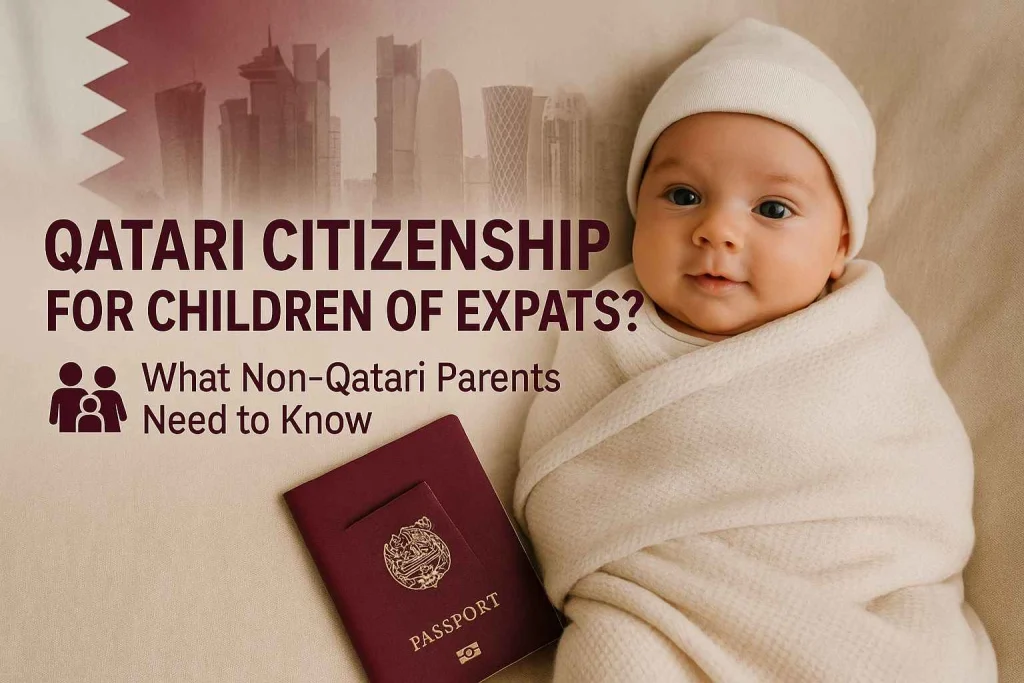
Expat Tips for Pregnancy and baby delivery in Qatar
Having a baby abroad in Qatar can feel overwhelming at first, but there’s plenty of support available for expat mothers. From hospitals to online communities, Qatar offers helpful resources to make the journey smoother.
Many English-speaking doctors are available in both public and private hospitals, making communication easy and comfortable. It’s best to ask for one while booking your appointments.
To stay informed, download popular apps like MommysQatar, Pregnancy+, or BabyCenter, and join local forums or Facebook groups like Positive Birth Doha or Qatar Moms — these are great places to get advice from other expats.
While living in Qatar, it’s helpful to adjust to local customs, such as dressing modestly at hospitals, understanding gender preferences in care, and respecting prayer times.
Emergency Helpline Numbers in Qatar:
- 999 – Call this number for immediate ambulance services (operated by Hamad Medical Corporation). Operators can communicate in English and Arabic.
- 16000 – Ministry of Public Health helpline for general medical inquiries, including maternity services.
- 109 – Hukoomi (Qatar Government Portal) helpline for non-medical support and guidance.
Conclusion: Navigating Pregnancy and Baby Delivery in Qatar
Whether you’re a Qatari national or an expat, navigating pregnancy and baby delivery in Qatar can be a smooth and supportive experience when you understand the healthcare system, maternity rights, and available services. From prenatal checkups to choosing between public and private hospitals, Qatar offers a range of quality care options tailored to different needs and preferences.
Government facilities like Hamad Medical Corporation (HMC) provide subsidized maternity care, while private hospitals in Doha offer shorter wait times, premium facilities, and multilingual staff. Expecting mothers also have access to licensed nurseries, English-speaking doctors, certified doulas, and supportive expat communities that ease the transition—especially for those having a baby abroad in Qatar.
By understanding maternity leave policies, completing the necessary documentation, and being mindful of cultural and religious values, families can experience a safe and positive childbirth journey. With proper planning and awareness, delivering a baby in Qatar in 2025 can be both reassuring and empowering.
Frequently asked questions
How can I give birth at Hamad Hospital in Qatar?
To give birth at Hamad Hospital in Qatar, you need to first register for maternity care through your nearest Primary Health Care Center (PHCC) using your valid Qatar ID, health card, and marriage certificate. Once referred, Hamad Medical Corporation (HMC) will schedule your prenatal and delivery services. It’s recommended to book early in your pregnancy due to high demand.
How much does it cost to give birth in Qatar?
In 2025, the cost of giving birth in Qatar varies:
- Public hospitals (e.g., Hamad): Mostly covered if you have a valid health card.
- Private hospitals: QR 8,000–15,000 for normal delivery and QR 15,000–25,000+ for a C-section, depending on the hospital and room choice.
Where can I buy pregnancy pills in Qatar?
You can buy pregnancy supplements like folic acid, prenatal vitamins, and iron tablets at major pharmacies in Qatar such as Boots, Wellcare, and Kulud. Some may require a doctor’s prescription, especially iron and hormone-based supplements.
Can foreigners give birth in Qatar?
Yes, foreigners can give birth in both public and private hospitals in Qatar. However, access to public hospitals like Hamad usually requires a valid Qatar ID, health card, and legal residency. Private hospitals are more flexible but involve higher costs.
How much is a pregnancy blood test in Qatar?
A pregnancy blood test in Qatar costs around QR 100 to QR 250 at private clinics. In government PHCCs, it may be free or low-cost if you have a health card. Blood tests are more accurate than home kits and can detect pregnancy earlier.
What is the pregnancy policy in Qatar?
Qatar encourages prenatal care for all legal residents. Pregnant women must be legally married to register for maternity services at public hospitals. Regular antenatal checkups, scans, and supplements are recommended throughout the pregnancy.
What is the maternity law in Qatar for working women?
Under Qatari labor law, female employees are entitled to 50 days of paid maternity leave, provided they have completed at least one year of service. Some private companies may offer extended leave or unpaid options based on internal policies.
Is pregnancy covered by insurance in Qatar?
Yes, many private health insurance plans in Qatar cover pregnancy-related services, including checkups, scans, and delivery. However, coverage depends on the plan. Always check if maternity is included and whether there’s a waiting period or co-payment.
Where to buy a pregnancy kit in Qatar?
Pregnancy test kits are easily available at all pharmacies in Qatar, such as Boots, Lulu, and Al Meera branches. They are affordable, range from QR 15 to QR 40, and provide quick results at home.
What happens if an expat baby is born in Qatar?
If an expat baby is born in Qatar, the child is not entitled to Qatari citizenship, as Qatar does not grant citizenship by birth. However, parents can obtain a birth certificate from the hospital and must then register the baby with their home country’s embassy to issue a passport. Once the passport is ready, they can apply for the baby’s Qatar ID (residency permit) through the Ministry of Interior.
What are the benefits of being born in Qatar?
While being born in Qatar does not grant citizenship, there are still several benefits. Babies born in Qatar have access to high-quality healthcare, well-structured immunization programs, and modern hospital facilities. Expat children can also be issued a Qatari birth certificate and apply for a residency permit (QID), allowing them to access services like healthcare and education while living in the country.
What is the C-section rate in Qatar?
The cesarean (C-section) delivery rate in Qatar ranges between 25% and 35%, depending on the hospital and medical necessity. Private hospitals tend to have slightly higher rates, partly due to patient preferences and scheduled deliveries. Most hospitals in Qatar support both natural and cesarean births with proper medical guidance.
Is Qatar good for children?
Yes, Qatar is considered a safe and family-friendly country with excellent healthcare, international schools, modern housing, and numerous recreational options for children. Public spaces are clean, and the country emphasizes child health and development through regular checkups, vaccinations, and child-friendly infrastructure.
Do you get money if you are born in Qatar?
No, expat families do not receive any financial benefits or grants for giving birth in Qatar. Financial support or childbirth allowances may be available only to Qatari nationals through government programs. Expatriates are responsible for all medical and registration costs related to childbirth.


